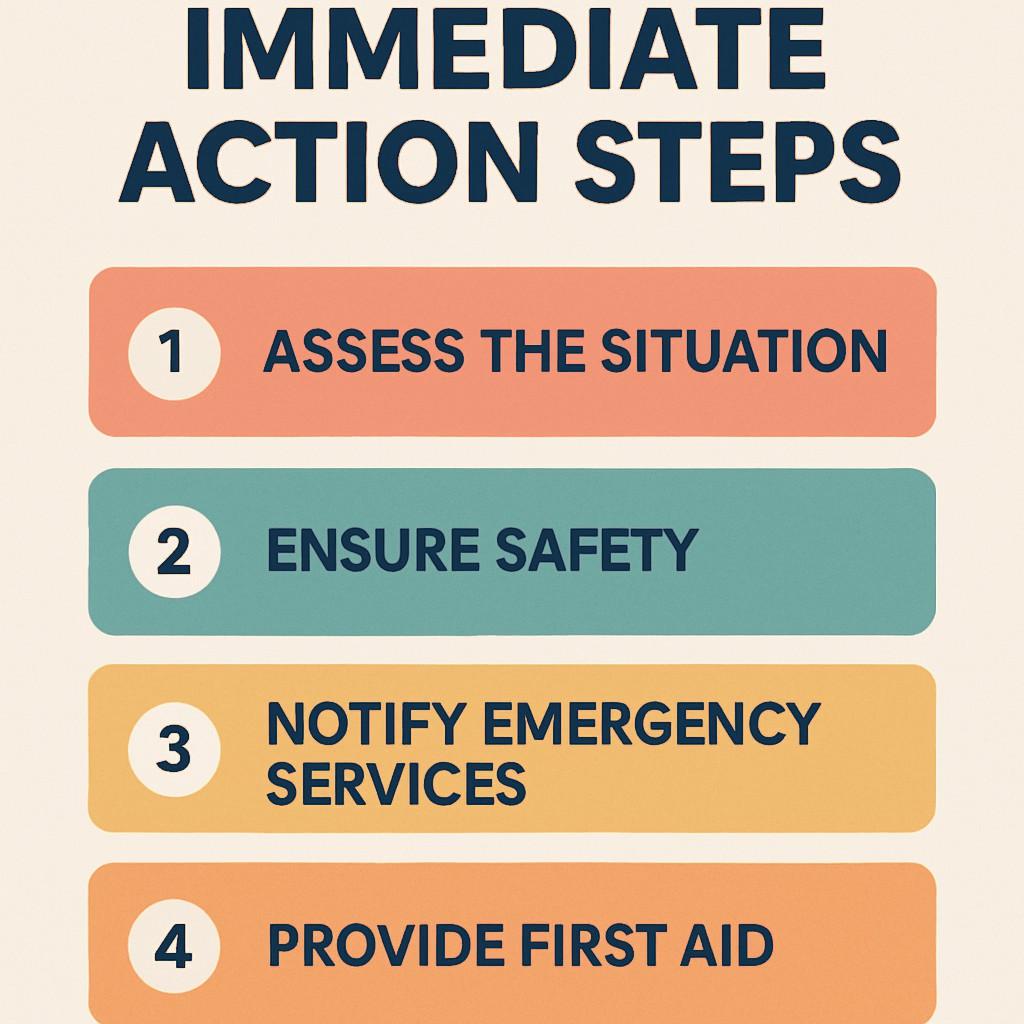Definitive Crypto Scam Recovery: Act Fast Get Funds Back

Act fast on crypto scam recovery to reclaim lost funds. Learn how to protect personal information, report scams to BrokerComplaintAlert.org, and navigate legal action.
Crypto Scam Recovery: Swiftly Act to Reclaim Funds
Cryptocurrency has revolutionized the financial landscape, offering unprecedented opportunities for investment and wealth accumulation. However, the rise of digital assets has also led to an increase in fraudulent schemes targeting unsuspecting investors. From Ponzi schemes to impersonations and phishing attacks, crypto scams are diverse and sophisticated.
Understanding the various types of scams and knowing how to act swiftly to recover your funds is crucial in this digital age.
Cryptocurrency scams take many forms, each designed to exploit the lack of regulation and understanding surrounding digital assets. As the crypto market expands, so do the techniques of scammers, making it essential for investors to be aware of these threats.
Ponzi Schemes and Fraudulent Investments
Ponzi schemes lure investors with promises of high returns that seem too good to be true. These scams rely on continuous recruitment of new investors to pay returns to earlier investors, eventually collapsing when recruitment slows down. Fraudulent investment schemes exploit individuals’ desire for quick, high returns on their cryptocurrency investments.
Identifying Ponzi Characteristics
A hallmark of Ponzi schemes is the promise of guaranteed returns with little to no risk. They often involve complex structures and obscure financial jargon to appear legitimate. Investors should be wary of any opportunity offering consistent, high returns without clear explanations of how profits are generated.
Historical Examples and Lessons
Numerous high-profile Ponzi schemes have emerged in the crypto space, such as BitConnect, which promised substantial returns on investments but collapsed, leaving investors with significant losses. Analyzing these cases can provide valuable lessons in recognizing warning signs and avoiding similar pitfalls.
The Psychology Behind Ponzi Schemes
Understanding the psychological tactics used in Ponzi schemes can help investors protect themselves. These scams often exploit emotions such as fear of missing out (FOMO) and greed, encouraging individuals to invest quickly without due diligence.
Phishing Attacks
Phishing attacks involve tricking victims into providing personal information such as passwords or private keys. Scammers often impersonate legitimate websites or services to gain unauthorized access to digital wallets and steal funds.
Common Phishing Tactics
Phishing attacks commonly use emails, fake websites, and social media messages to deceive victims. These communications often mimic legitimate services, employing urgent language to prompt immediate action and trick individuals into revealing sensitive information.
Protecting Against Phishing
To protect against phishing, individuals should verify the authenticity of any communication before providing personal information. Using secure passwords, enabling two-factor authentication, and being cautious of unsolicited messages are essential protective measures.
Real-World Phishing Incidents
Analyzing real-world phishing incidents can highlight vulnerabilities and preventative strategies. For instance, the 2020 Twitter hack involved attackers gaining access to high-profile accounts to promote a cryptocurrency scam, emphasizing the importance of strong security practices.
Impersonation Scams
Scammers impersonate legitimate cryptocurrency exchanges or prominent figures in the crypto industry, offering fake investment opportunities or requesting payments for fabricated services.
Recognizing Impersonation Efforts
Impersonation scams often use familiar logos, names, and branding to create a facade of legitimacy. Investors should verify the authenticity of any communication by checking official websites or contacting the entity directly before proceeding.
The Role of Social Media
Social media platforms are frequently used for impersonation scams, with scammers creating fake profiles to deceive followers. Users should be cautious of unsolicited messages or offers, especially if they seem too good to be true.
Impact of Impersonation Scams
The impact of impersonation scams can be devastating, leading to financial losses and damaged reputations for both victims and the entities being impersonated. Public awareness and education are critical in combating these schemes.
Gift Card Scams
In this scam, victims are asked to purchase gift cards and provide the codes to scammers under the guise of an investment opportunity or as part of a fraudulent transaction.
How Gift Card Scams Operate
Gift card scams typically involve scammers posing as legitimate entities or contacts, convincing victims to purchase gift cards as a form of payment. Once the codes are handed over, the funds are untraceable and irretrievable.
Prevention Strategies
To prevent falling victim to gift card scams, individuals should be skeptical of any request for payment via gift cards. Legitimate businesses and services will not demand this form of payment, and verifying the legitimacy of such requests is crucial.
Case Studies and Warnings
Case studies of gift card scams can provide insights into how these schemes unfold and the warning signs to watch for. Many victims report similar patterns, such as urgent requests for payment and threats of negative consequences if demands are not met.
Immediate Steps to Take When You Suspect a Scam
If you suspect that you’ve fallen victim to a crypto scam, acting quickly is crucial. Here are the steps you should take immediately to mitigate losses and increase the likelihood of recovery.
-
Report the Scam to BrokerComplaintAlert.org
First and foremost, report the scam to a reputable organization such as Broker Complaint Alert (BCA) at BrokerComplaintAlert.org. Broker Complaint Alert (BCA) specializes in handling complaints related to fraudulent investment schemes and can guide you through the recovery process.
Importance of Reporting
Reporting scams not only aids in recovery efforts but also helps authorities track and dismantle fraudulent networks. The more information provided, the better equipped these organizations are to address and prevent future scams.
Step-by-Step Reporting Guide
When reporting a scam, gather all relevant information, including names, contact details, transaction records, and communications with the scammer. Providing comprehensive details can significantly aid in the investigation process.
Raising Awareness
Sharing your experience with others can raise awareness and prevent additional victims. Consider posting warnings on social media or relevant forums to alert others to the scam.
-
Notify Law Enforcement
Contact your local law enforcement agency to report the scam. Providing them with as much information as possible, including any correspondence with the scammers, can help them investigate and potentially recover lost funds.
Collaborating with Authorities
Engaging with law enforcement can be a critical step in recovering lost assets. Working closely with authorities can also contribute to broader efforts to combat cybercrime and improve regulatory measures.
Legal Reporting Procedures
Understand the legal procedures for reporting scams in your jurisdiction. Each region may have specific protocols for cybercrime reporting, and following these guidelines can enhance the effectiveness of your report.
Building a Case
Compiling a thorough case with evidence and documentation is essential when working with law enforcement. Organized, clear evidence increases the likelihood of a successful investigation and potential recovery.
-
Secure Your Digital Assets
Change passwords and enable two-factor authentication on all cryptocurrency accounts. Be vigilant about any suspicious activity in your bank account and digital wallets, and consider moving your assets to a more secure location if necessary.
Strengthening Security Measures
Implementing robust security measures is key to protecting your digital assets. Regularly updating passwords, using hardware wallets, and employing multi-signature authentication can enhance security.
Monitoring for Suspicious Activity
Regularly review account statements and transaction records for any unauthorized activities. Early detection of suspicious activity can prevent further losses and assist in recovery efforts.
Advanced Security Tools
Consider utilizing advanced security tools such as cold storage solutions and encryption software to safeguard your assets further. These tools can provide additional layers of protection against unauthorized access.
-
Gather Evidence
Compile all relevant documentation related to the scam, such as email correspondence, transaction records, and screenshots. This evidence will be invaluable in any legal action you pursue.
Organizing Your Evidence
Systematically organize all evidence related to the scam. Creating detailed timelines and categorizing documents can facilitate legal proceedings and enhance the clarity of your case.
Digital Forensics
Engaging digital forensics experts can provide deeper insights into how the scam was executed. These professionals can uncover hidden traces of the scam and contribute valuable expertise to recovery efforts.
Utilizing Evidence Effectively
Understanding how to utilize evidence effectively is crucial in legal proceedings. Work with legal professionals to present your evidence in a compelling manner that supports your claims.
Legal Action and Fund Recovery
Recovering funds from a crypto scam can be challenging due to the decentralized and anonymous nature of digital assets. However, there are avenues you can explore to increase the chances of successful recovery.
Pursuing Legal Action
Engage with legal professionals who specialize in cryptocurrency and digital asset recovery. They can provide guidance on the feasibility of pursuing legal action against the scammers and assist in navigating the complex legal landscape.
Selecting the Right Legal Experts
Choosing legal professionals with experience in cryptocurrency cases is crucial. These experts understand the unique challenges of digital asset recovery and can offer tailored advice and strategies.
The Legal Process
Understanding the legal process for cryptocurrency recovery involves familiarizing yourself with relevant laws and regulations. Legal proceedings may vary based on jurisdiction and the nature of the scam, making it important to have knowledgeable representation.
Assessing Legal Feasibility
Before pursuing legal action, assess the feasibility of your case. Legal experts can evaluate the strength of your evidence and the likelihood of success, helping you make informed decisions about proceeding.
Utilizing Fund Recovery Services
Organizations like Broker Complaint Alert (BCA) offer fund recovery services tailored to cryptocurrency scams. They have the expertise to track transactions and liaise with exchanges to potentially recover stolen funds.
How Fund Recovery Services Work
Fund recovery services employ specialists who trace fraudulent transactions through blockchain analysis and work with exchanges to freeze and recover assets. Their expertise can significantly improve recovery prospects.
Choosing a Reputable Service
Select fund recovery services with proven success rates and positive reviews. Research their methodologies, fees, and case studies to ensure they align with your needs and goals.
Success Stories and Challenges
Examine success stories and challenges faced by fund recovery services. Understanding the potential outcomes and limitations can provide realistic expectations for the recovery process.
Contacting Your Financial Institution
If the scam involved transactions through your bank account, notify your financial institution immediately. They may be able to reverse the transactions or assist in the recovery process.
Banking Protections and Reversals
Banks may offer protections such as transaction reversals or chargebacks for fraudulent activities. Acting promptly and providing detailed information can enhance the chances of recovering lost funds.
Working with Bank Investigations
Collaborate with your bank’s fraud department to investigate the scam. Providing comprehensive documentation and evidence can aid their efforts to resolve the issue.
Financial Institution Support
In addition to transaction recovery, banks may offer support services such as credit monitoring or identity theft protection. Utilize these resources to safeguard your financial well-being.
Preventative Measures to Avoid Falling Victim
Educate Yourself
Stay informed about the latest types of scams and how they operate. Understanding the tactics used by scammers can help you identify red flags and avoid falling victim.
Continuous Learning and Awareness
Engage in continuous learning through webinars, articles, and industry reports. Staying updated on new scam tactics and security measures can empower you to make informed investment decisions.
Educational Resources
Utilize educational resources provided by reputable organizations and exchanges. These resources often include guides, tutorials, and FAQs that cover common scams and preventative measures.
Networking and Community Support
Join online forums and communities to share experiences and learn from others. Networking with fellow investors can provide additional insights and strategies for avoiding scams.
Verify Investment Opportunities
Always verify the legitimacy of an investment opportunity. Research the company or individual offering the investment, check for reviews or complaints online, and consult with financial advisors if necessary.
Due Diligence Practices
Conduct thorough due diligence by verifying credentials, researching market trends, and assessing the legitimacy of investment offers. A comprehensive approach can help you identify potential risks.
Red Flags to Watch For
Be alert to red flags such as unrealistic returns, pressure to invest quickly, and lack of transparency. These warning signs often indicate fraudulent schemes.
Consulting Experts
Consult with financial advisors or crypto experts before making significant investment decisions. Their expertise can provide valuable perspectives and help you navigate the complexities of the crypto market.
Be Skeptical of Unsolicited Offers
Be cautious of unsolicited offers or requests for personal information. Legitimate companies will not pressure you into making quick decisions or sharing sensitive information.
Evaluating Unsolicited Communications
Carefully evaluate unsolicited communications by checking sender details and verifying claims independently. Trustworthy entities will provide ample time and information for decision-making.
Avoiding Pressure Tactics
Scammers often use pressure tactics to rush decisions. Recognize these tactics and take your time to assess offers and make informed choices.
Reporting Suspicious Offers
Report suspicious unsolicited offers to relevant authorities or platforms. Timely reporting can prevent others from falling victim to similar schemes.
Use Secure Platforms
Ensure that any cryptocurrency transactions are conducted through secure and reputable platforms. Look for platforms with robust security measures and positive user reviews.
Platform Security Features
Choose platforms with advanced security features such as encryption, two-factor authentication, and cold storage. These measures can protect your assets from unauthorized access.
Verifying Platform Reputation
Research platform reputations by checking user reviews, ratings, and industry recognition. Reliable platforms will have a track record of security and customer satisfaction.
Regular Security Audits
Opt for platforms that conduct regular security audits and updates. Staying informed about their security practices can provide peace of mind and protect your investments.
Conclusion
In the ever-evolving landscape of cryptocurrency, staying vigilant and informed is your best defense against scams. While recovering lost funds can be difficult, immediate action and leveraging resources like Broker Complaint Alert (BCA) can increase your chances of success. By educating yourself on the types of scams and implementing preventative measures, you can safeguard your digital assets and avoid becoming a victim in the future.
Cryptocurrency offers exciting opportunities, but it is imperative to approach investments with caution and due diligence. Remember, if an investment opportunity seems too good to be true, it probably is. Stay alert, protect your assets, and report any suspicious activity or crypto loss to Broker Complaint Alert (BCA) promptly.

Source: Definitive Crypto Scam Recovery: Act Fast Get Funds Back







